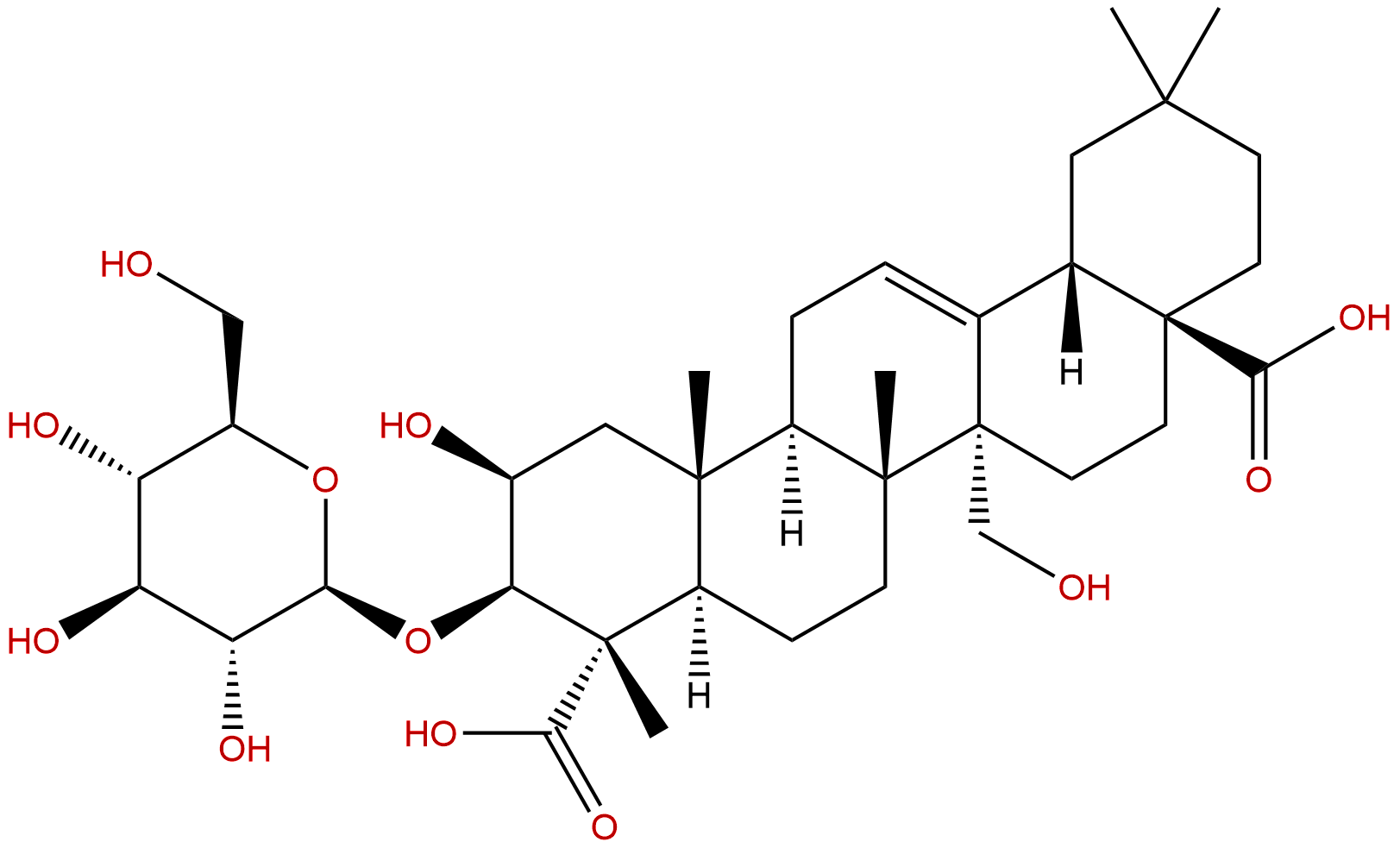Product name: Tenuifolin
Synonym name:
Catalogue No.: BP1374
Cas No.: 20183-47-5
Formula: C36H56O12
Mol Weight: 680.832
Botanical Source: Polygala tenuifolia, Polygala senega, Strophanthus sp. and Pygeum africanum (preferred genus name Prunus)
Physical Description: White powder
Type of Compound: Triterpenoids
Purity: 95%~99%
Analysis Method: HPLC-DAD or/and HPLC-ELSD
Identification Method: Mass, NMR
Packing: Brown vial or HDPE plastic bottle
Storage: Store in a well closed container, protected from air and light. Put into refrigerate or freeze for long term storage.
Whenever possible, you should prepare and use solutions on the same day. However, if you need to make up stock solutions in advance, we recommend that you store the solution as aliquots in tightly sealed vials at -20℃. Generally, these will be useable for up to two weeks.
The product could be supplied from milligrams to grams, up to kilograms
Inquire for bulk scale.
Descriptions:
Tenuifolin is an effective compound from tenuigenin, is commonly used in traditional Chinese herbal medicine for memory loss, has no inherent toxicity to either the transfected or wild type cells at the effective concentrations, it inhibits amyloid-β secretion in vitro.[1]
Tenuifolin is one of the active constituents of HPS against the neurotoxicity induced by Aβ25-35 peptides in vitro and in vivo, it possesses neuroprotective effects against Aβ25-35-induced apoptosis in PC12 cells and significantly improves the cognitive deficits induced by the intrahippocampal injection of Aβ25-35 in mice. [2]
References:
[1] Lv J, Jia H, Jiang Y, et al. Acta Physiol, 2009, 196(4):419-25.
[2] Liu Y M, Li Z Y, Hu H, et al. Pharmacol Biochem Be, 2015, 128:14-22.
[3] Dong X B, Jun L I, Jiang Y, et al. China journal of Chinese materia medica, 2007, 32(16):1647-9.


